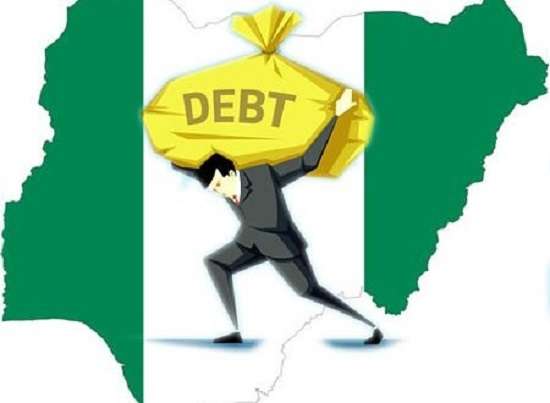The Debt Management Office (DMO) says at the end of the 2023 second quarter, Nigeria’s total public debt was N87.38 trillion.
The amount is up 75.29 percent, or N37.53 trillion, from the N49.85 trillion recorded at the end of March 2023.
The N22.71 trillion in Ways and Means Advances from the Central Bank of Nigeria to the Federal Government are included in the debt, according to a report released by the DMO on Thursday.
The DMO stated, “Nigeria’s total public debt stock as at June 30, 2023, was N87.38tn ($113.42bn). It comprises the total domestic and external debts of the Federal Government of Nigeria, the thirty-six states, and the Federal Capital Territory.
The statement also noted that other additions to the debt stock were new borrowings by the Federal Government and the sub-nationals from local and external sources.
The DMO had earlier projected that Nigeria’s public debt burden may hit N77tn following the National Assembly’s approval of the request by former President Muhammadu Buhari to restructure the CBN’s Ways and Means Advances.
The Ways and Means Advances is a loan facility through which the CBN finances the shortfalls in the government’s budget.
The Director-General of the DMO, Patience Oniha, during a public presentation of the 2023 budget organized by the former Minister of Finance, Budget and National Planning, Dr Zainab Ahmed, noted that the debt would be N70tn without N5tn new borrowing and N2tn promissory notes.
Read Also: Borrowing for development can pay for itself — Obasanjo
However, the latest data showed that the current debt stock of N87.38tn exceeded the DMO’s projection by N10.38tn.
Further breakdown showed that Nigeria has a total domestic debt of N54.13tn and a total external debt of N33.25tn.
The domestic debt rose by 79.18 percent from N30.21tn while the external debt rose by 69.28 percent from N19.64tn in Q1 2023.
In its 2022 Debt Sustainability Analysis Report, the DMO warned that the Federal Government’s projected revenue of N10tn for 2023 could not support fresh borrowings.
According to the office, the projected government’s debt service-to-revenue ratio of 73.5 percent for 2023 is high and a threat to debt sustainability.
It noted that the government’s current revenue profile could not support higher levels of borrowing.
In a report titled, ‘Report of the Annual National Market Access Country Debt Sustainability Analysis (DSA),’ the debt office said, “The projected FGN Debt Service-to-Revenue ratio at 73.5 percent for 2023 is high and a threat to debt sustainability.
DMO stated that the government must pay attention to revenue generation by implementing far-reaching revenue mobilization initiatives and reforms including the Strategic Revenue Growth Initiatives and all its pillars with a view to raising the country’s tax revenue to GDP ratio from about 7 percent to that of its peer.
The Federal Government would be unable to borrow a lot as it nears its self-imposed debt limit of 40 percent, the DMO said.
To reduce borrowing and budget deficit, DMO stated that the government should encourage the private sector to fund some of the capital projects that were being financed from borrowing through the public-private partnership schemes.
It added that the Federal Government can reduce borrowing through the privatization and/or sale of Government assets.
Over the years, Nigeria’s low revenue generation has pushed the government to more borrowing.
However, President Bola Tinubu recently expressed his administration’s commitment to break the cycle of overreliance on borrowing for public spending, and the resultant burden of debt servicing it places on management of limited government revenues.



